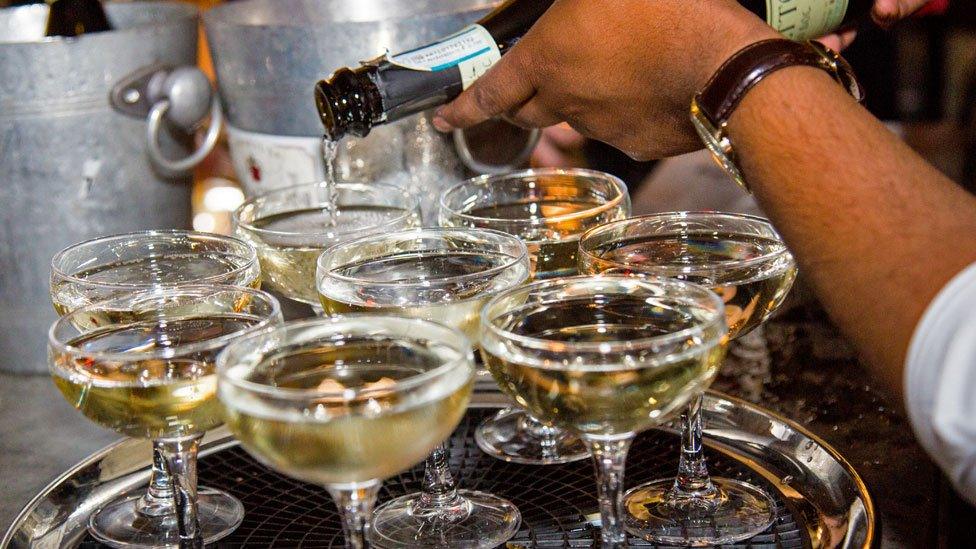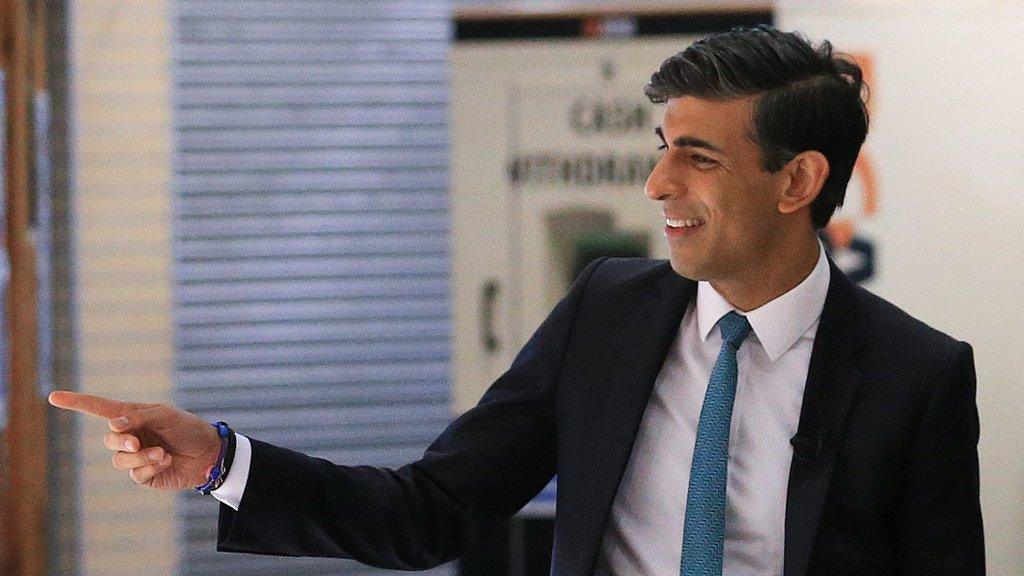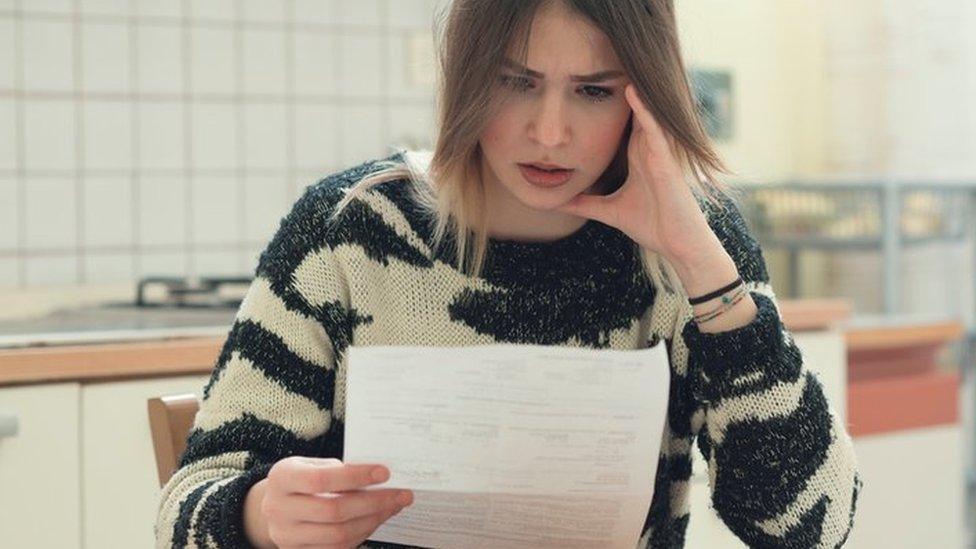Wine drinkers face higher prices and less choice, firm warns
- Published

Proposed changes to alcohol duty will lead to higher prices and less choice for wine drinkers, the owner of wine merchant Laithwaites has warned.
The proposals, contained in October's Budget, were described by Chancellor Rishi Sunak as the "most radical simplification of alcohol duties for over 140 years".
But Direct Wines said the complexity would be "crippling" for the trade.
It said small and medium firms would "probably go out of business".
In the Budget, the chancellor said that under the new system for alcohol duty, which is due to start in 2023, taxes on sparkling wine, draught beer and cider would be cut, but would rise for stronger drinks such as red wine.
According to the Wine and Spirit Trade Association (WSTA), if wine is taxed according to its alcoholic strength in this way, 70% of all wine, still and sparkling, will go up in price, as will 80% of all still wine, 95% of red wine and 100% of fortified wines.
The government's consultation on the proposals has just closed. A spokesperson from the Treasury said that for all wines with an ABV between 8.5% and 22%, there will be one band based on alcohol content.
"Our reforms will replace our outdated rules with a common-sense approach that puts the taxation of stronger beers, wines and spirits on an equal footing, making lighter and sparkling wines more affordable for UK drinkers", they said.
'Administrative nightmare'
Speaking to the BBC's Today programme, the treasurer of Direct Wines, Tim Curtis, said that under the present system there were three rates of duty on wine: one for still wine, a slightly higher one for sparkling wine and a higher one for fortified wine.
"So it's just three numbers and the majority of still wines sold in the UK, it's £2.23 a bottle, it couldn't really be much simpler," he said.
"But the Treasury have had a go and they've created 13 wine bands for the same £2.23, so for every half a percent of alcohol increase it goes up about 10p per bottle and above the 15% threshold there's another 14 bands so really they're replacing three with 27."
The WSTA has calculated implementing the changes would result in an increase in costs of about £250m a year for the wine trade.
"The complexity for the wine trade... is crippling," said Mr Curtis.

"Wine is an agricultural product and the ABV (Alcohol by Volume) of wine is set by the amount of sunshine warmth in the vineyard when the grapes grow on the vines and that changes every year.
"Last year we sold over 7,500 different wines and we would need a team of people dedicated to this to track and calculate the correct amount of duty for each product."
Mr Curtis said the average price of wine would "certainly go up for the UK consumer".
"It is the same cost to set up a duty rate for 12 bottles of wine as it is if you're selling a million so inherently for small and medium merchants in the UK this is just going to become an administrative nightmare.
"The red tape is just huge so you can imagine some ranges will shrink and sadly some small and medium enterprises will probably go out of business. So for the consumer it is a case of higher cost, less choice and fewer merchants competing for their business."
Wine mail order company The Wine Society, which has sales of £130m a year, initially welcomed the government review because it aimed to simplify the duty regime.
"But actually it doesn't simplify it at all," said its director of wine Pierre Mansour.
'The cost of wine will increase'
He also said that Wine Society members would pay more for their wine as a result of the proposed changes.
Most still wines sold by the Society, and in the UK overall, are 11.5% ABV and above.
"That's about 95% of our sales," he said. "And we estimate that with the new taxation customers would end up paying an additional £2m a year in duty, so the cost of wine will increase because the taxation is going to rise."
A spokesman for the chain Majestic Wine said the move would have an effect on the "day to day pricing of wines that most consumers drink".
It would "inevitably have an impact on retailers' bottom lines - and whilst we will work hard to minimise the impact this has on our customers, it comes at a very challenging time for the industry".
Similarly, head of wine at the Adnams brewery, which is based in Southwold, Suffolk, said that reduced sales and compromised margins will make this sector "increasingly unappealing to small business and entrepreneurship".
Increasing three tax bands to more than 20% would add "complexity and cost to all drinks retailers in the UK. Clearly, we do not see this as simplification and would urge the government to listen to the WSTA and its members to reconsider this move," the spokesperson for Majestic Wine added.
Instead of the government's proposals, The Wine Society said a simpler approach would be to apply tax bands across categories of alcohol, so any type of alcohol up to 5% ABV would be taxed at the same rate, with this rising for drinks of between 5% and 10% ABV, and so on.
Alternatively, most still wine sold in the UK is 8.5%-15% ABV. Mr Mansour said one single tax rate could be applied to all wines in that range, fixing it at the mid-point of the band - so at 12%.
Related topics
- Published27 October 2021

- Published28 October 2021

- Published27 October 2021
